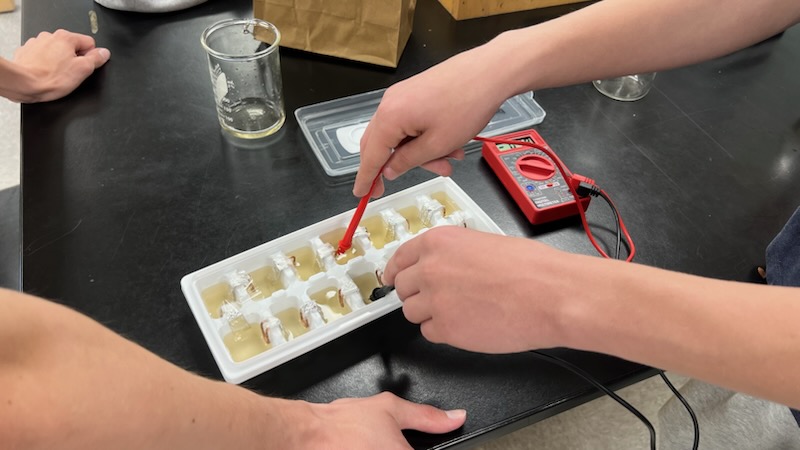As the modern world continues to grow, the population flourishes even as companies prosper and the people of California envision the world of tomorrow.
Every year, new paths of technology are forged but one thing has remained the same–Fresno County relies on agriculture even after 150 years.
Fresno was founded in 1856 and this year marked its Sesquicentennial. The county continues to celebrate 150 years of community through December as the backbone of the community remains committed to farming.
In addition to fame for its immigrants, businessmen, and growing residency, Fresno is known mostly for being one of the most agriculturally rich counties in the world. The San Joaquin Valley is covered with a million acres of cropland, as well as dairy and cattle farms.
According to the UC Davis website, “Eight of California’s 15 top producing agricultural counties are in the Central Valley, and of the top seven, only one (Monterey) is not encompassed in the area from San Joaquin to Kern. This area is not only the most productive in California, it is widely considered the most productive in the world.”
Farming changes after 150 years
As technology for agriculture changes, so does the farmer’s responsibilities.
“Everything now works a lot different from 150 years ago,” Pete DeGroot, local dairyman and father of three campus graduates, said. “Back then, if you wanted to farm, you could go out and do it on your own. Today, you have to be a part of the operation, or you have to inherit the operation.”
DeGroot’s grandfather emigrated from Holland to California in 1955. He began the dairy-farming legacy of his family by milking 400 cows a day. He then began his own business with his family.
“In Fresno, my dad, myself, and my brother, Dave, stayed to get our own dairy farm,” DeGroot said. “Now I own most of the business, and instead of 400 cows, we milk nearly 2,400 cows a day.”
Today, aspiring farmers typically find jobs at larger farms and worked their way up.
“You have got to be more of a businessman to be a farmer,” DeGroot said. “You have to be an accountant, a banker, lawyer, mechanic, and so on. I spend a lot of my time in an office, filing papers, instead of the physical work all the time.”
DeGroot believes 50% of the population is connected to farming in some way in Fresno County. The economy relies on the agricultural community, whether or not it is directly contacted.
Recently, the Big Fresno Fair showcased exhibits that proved why Fresno County, as well as the San Joaquin Valley, is the number one agriculture-producing area in the world. With over 6,500 farms in the Valley, nearly 7% of the United States’ agriculture originates in and around Fresno.
“My family farms a lot of different things, like peaches, plums, beans, squash, and a lot of other vegetables and fruits,” Scott Thao, ’09, said. “We pick everything and take the crops to Farmer’s Markets and places like that. Farmers’ Markets happen at places other than Fresno, between April and November. I go with them almost every weekend.”
Fresno county export region expands
Transportation and technology advances allow farmers to distribute their crops throughout a wider range. A century ago, the harvests were transported only locally. Now, Fresno’s agriculture is spread across the country.
“We sell 19,000 gallons of milk a day to other operations, and they sell it to the producers,” DeGroot said. “I get paid for it, but I don’t know where it all goes. My milk is distributed just to Fresno, but it’s possible that it could be spread out. I am not part of who gets my milk, whether it goes to Foster Farms or a grocery store.”
Even though farms now work on a larger scale, families mainly run their own farms. Despite a greater number of regulations for farmers added by the government since 1856, many families pass their farms on to their children or other family members to continue business.
“My family lives on a 300-acre vineyard,” Drake Olson, ’08, said. “My dad would like me to take over the farm, but I am pursuing aviation. I just don’t want to farm. I want a change in scenery and my dad encourages me to do so.”
Family atmosphere improves farm
Even non-family members of staff are treated with the respect of an extended family.
“We have 40 full-time employees,” DeGroot said. “Almost all of them have worked with me for over 20 years, and they’re happy. We all know each other very well.”
All of DeGroot’s children have attended school on campus. As a current member of the school board he continues to visit campus regularly and support his son, Luke, ’09.
“My dad likes to donate money to his favorite organizations, and the ones that I’m in, like the choir program or the music program,” Luke said. “He always checks online, so he knows what’s going on.”
Over the years, Fresno County became the nation’s leading agricultural county by producing more than three billion dollars’ worth of crops each year. These crops include stone fruit, melons, nuts, grains, rice and vegetables. The two leading crops are cotton and grapes.
A major factor that changed the basic foundation of farming over the years is the cost to own a farm. The high prices compared to those over a century ago make taking over a farming operation nearly impossible.
“My family has owned our vineyard since 1920,” Olson said. “Farmers make good money, and most of the operations are machinery powered. We take the raisins to Sun Maid Raisins, and the grapes to different wineries in the area.”
Fresno’s agricultural exports are not limited to only one state or country. Every year, millions of crops are transported across the world, and the number of farms in the area continually grows.
For more information call the Small Farm Center at (530) 752-8136.
For those wanting a visual history of Fresno County, its people and history–consider a DVD copy of “A Land Between Rivers” for $19.95 by San Fransisco filmmaker Kevin White and local historians. The DVD can be purchased online at www.alandbetweenrivers.org and, Gottschalks in Manchester Center and Whole Foods Market.






